Italian oil major Eni is facing the country’s first climate lawsuit, with environmental groups alleging the company used “greenwashing” to push for more fossil fuels despite knowing of the risks posed by burning its products since 1970.
Greenpeace Italy and Italian advocacy group ReCommon aim to build on a similar case targeting Anglo-Dutch oil major Royal Dutch Shell in the Netherlands to force Eni to slash its carbon emissions by 45 percent by 2030.
While Eni is among the world’s largest oil companies, the company’s role in climate change has so far undergone scant scrutiny.
But the groups have unearthed a 1970 report by Eni’s Isvet research centre that warned of the “catastrophic” risk the build-up of carbon dioxide (CO2) caused by burning fossil fuels could pose to the climate.
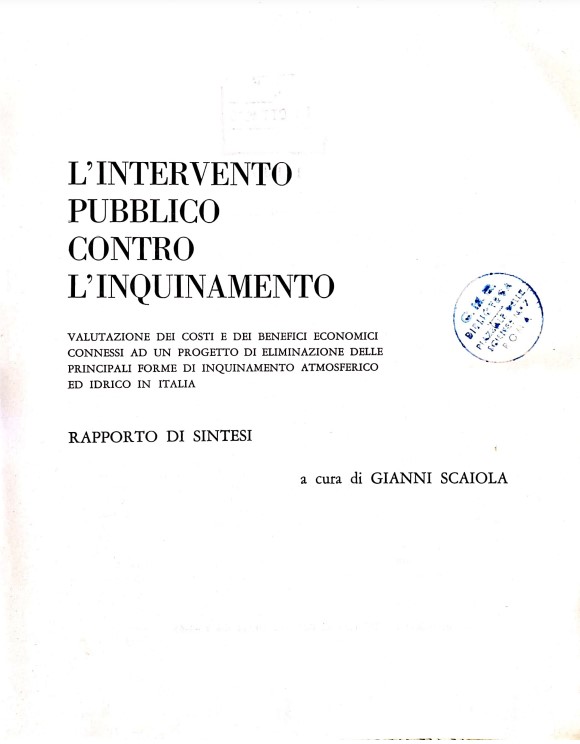
Further research by DeSmog has shown that Eni’s company magazine Ecos made repeated references to climate change during the late 1980s and 1990s — while running advertising campaigns promoting natural gas, which is mostly comprised of planet-warming methane, as a “clean” fuel.

Greenpeace Italy and ReCommon will charge in the lawsuit that although Eni has been aware for more than five decades that burning fossil fuels is the leading cause of climate change, the company used “lobbying and greenwashing” strategies to downplay the dangers posed by its business model.
“The urgency of taking action against the climate crisis has prompted us to bring the first climate lawsuit in Italy against the country’s largest energy company,” Matteo Ceruti, a lawyer for the plaintiffs, told DeSmog.
The lawsuit will also name two government entities — the Ministry of Economy and Finance, and the development bank Cassa Depositi e Prestiti — for the “influence they exercise on Eni,” the writ of summons states. Between them, the ministry and the bank hold the Italian government’s one-third ownership stake in Eni.
Greenpeace Italy and ReCommon announced the litigation at a news conference in Rome on Tuesday, held on the eve of Eni’s annual general meeting. The groups say they intend to file the lawsuit in the Civil Court of Rome by May 19, and will request that hearings begin in November.
“What we want is for those who knowingly and consciously caused climate change to be held accountable,” Simona Abbate, of Greenpeace Italy, told the news conference.
Eni has set a target of net zero carbon emissions by 2050. But Abbate said the company’s short-term plans to increase production of oil and gas were incompatible with the 2015 Paris climate agreement, and dismissed its pledges to use carbon capture and storage to reduce emissions as a form of greenwashing.
“Eni took a bath of green paint,” Abbate said. “But no color is enough to comply with the Paris Agreement.”
Eni said it would prove the lawsuit was “groundless,” and, if necessary, demonstrate in court that it had taken the correct approach to decarbonization. “The strategy combines and balances the essential objectives of sustainability, energy security and competitiveness of Italy,” Eni said in statement.
The company added that it reserved the right to take legal action to protect its reputation in response to “repeated defamatory actions” undertaken by ReCommon.
Last month, DeSmog revealed new evidence of Shell’s early knowledge of climate change, contained in a dossier of 201 documents unearthed by Dutch climate activist Vatan Hüzeir, and published on Climate Files.
The documents associated with the Eni case add to a growing body of evidence that oil companies had a clear understanding of the risks posed by burning their products more than half a century ago — but still chose to downplay the dangers and ramp up production of oil and gas.
“These findings reinforce and add to the pattern found in previous research: Oil majors understood the catastrophic effects their products would have on the world, yet failed to warn the public, concealed their knowledge, denied the problem, and obstructed efforts to solve it,” said Ben Franta, senior research fellow at the Oxford Sustainable Law Programme. “Like other fossil fuel companies, Eni might ultimately be held accountable in court for this pattern of deception and harm.”
Eni did not respond to a request for comment on its early knowledge of climate change.
With a market capitalization of nearly USD $49 billion, Eni typically appears among the world’s top dozen richest oil companies. In 2022, Eni reported a profit of $14.12 billion (13.3 billion euros), up $9.9 billion (9 billion euros) from 2021. The company operates in more than 60 countries and at all levels of the oil and gas sector — from exploration and drilling to petrochemical manufacturing.
Eni ranked 24th among global oil and gas majors for cumulative CO2 and methane emissions from 1950 to 2018, according to an analysis by the Climate Accountability Institute.
Landmark Cases
Two landmark climate cases in the Netherlands have raised the Italian campaigners’ hopes that they can use litigation to force companies and governments to rapidly cut climate-heating carbon emissions.
In 2019, the Dutch Supreme Court upheld a lower court ruling siding with the Urgenda Foundation, an environmental group, and ordered the Dutch government to adopt more ambitious targets for reducing emissions. Two years later, the Hague District Court ordered Shell to slash its emissions by 45 percent by 2030 after hearing a case brought by Friends of the Earth Netherlands, Greenpeace Netherlands and other groups. Shell has appealed the ruling.
The Italian case also bears a resemblance to a swelling number of consumer fraud lawsuits against Big Oil by states, cities and municipalities in the United States. The Supreme Court in April declined appeals by Exxon Mobil Corp., Chevron Corp., and Suncor Energy Inc. to move five of these cases from state to federal courts.
In April 2020, the Italian Competition Authority said it had fined Eni about $5.5 million (five million euros) for misleading consumers with “green” claims in a diesel fuel ad campaign. Last year, environmental groups filed a complaint with the Organization for Economic Cooperation and Development, an intergovernmental body, alleging that Eni’s plans to increase oil production ran contrary to its net zero goal. That case is still pending.
Otherwise, Eni has yet to feel much public pressure for climate accountability.
Campaigners say that Eni’s close relationship with the Italian government allows the company to influence national and European policy.
“No one discusses what the future of Eni is, it’s Eni that discusses what the future of Italy will be,” said Alessandro Runci, public finance and multinationals campaigner at ReCommon.
‘Serious Consequences’
The lawsuit is being filed against a backdrop of escalating climate impacts in Italy. A year-long drought in the northern Po River region has depleted lakes and rivers, dried up croplands, disrupted energy generation, and caused Venice canals to run dry.
The suit rests in part on the study Eni commissioned between 1969 and 1970 from its Isvet research centre, which was obtained by Greenpeace Italy and ReCommon, and shared with DeSmog. The report made clear that left unchecked, rising fossil fuel use could lead to a climate crisis within just a few decades: “[C]arbon dioxide in the atmosphere, according to a recent report by the U.N. Secretary, given the increased use of [fossil fuels], has increased over the last century by an average of 10 percent worldwide; around the year 2000 this increase could reach 25 percent, with ‘catastrophic’ consequences on climate.”
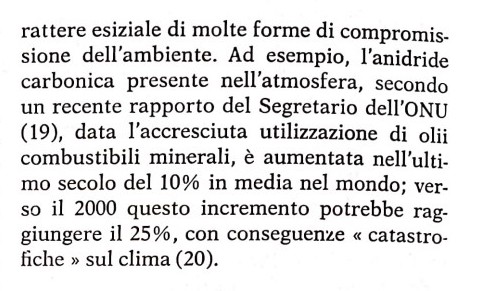
Greenpeace Italy and ReCommon have also unearthed a 1978 report produced by Eni’s Tecneco company, and seen by DeSmog. This report warned that rising use of fossil fuels posed a danger to the climate, and included a projection of atmospheric CO2 levels by the turn of the century.
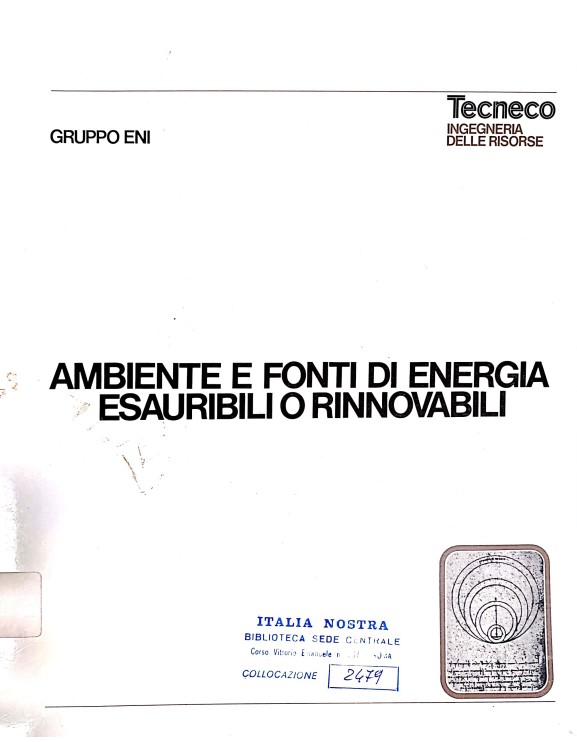
“It is assumed that with the increasing consumption of fossil fuels, which began with the industrial revolution, the CO2 concentration will reach 375-400 [parts per million or ppm] in the year 2000,” stated the report, titled Environment and Exhaustible or Renewable Sources of Energy. “This increase is considered by some scientists as a possible long-term problem, especially since it could change the thermal balance of the atmosphere leading to climate changes with serious consequences for the biosphere.”
This prediction would prove to be broadly accurate. Between 1970 and 2000, Earth’s atmospheric CO2 concentration rose from 325 ppm to 371 ppm.
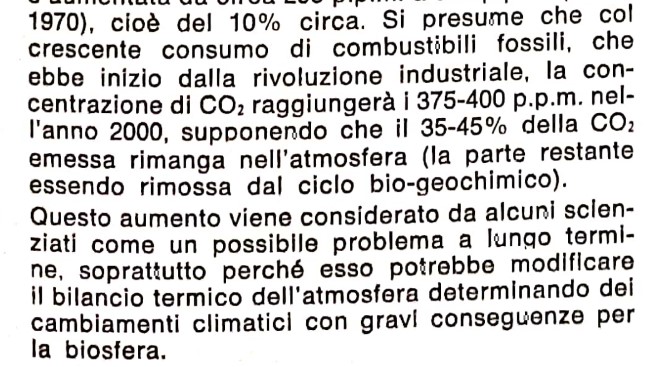
The 1978 report described natural gas as an “increasingly more attractive” source of energy, “especially because of the lack of serious negative effects on the environment.”
Burning methane, the main component of natural gas, emits considerably less air pollution and CO2 than coal or oil. But slashing methane emissions has become a global priority because the gas exerts a short-term warming effect about 100 times more powerful than CO2, and is responsible for some 30 percent of global warming that has occurred since the industrial revolution, according to the International Energy Agency.
‘Friend Methane!‘
From the late 1980s into the 1990s, an in-house magazine called Ecos repeatedly mentioned the link between fossil fuels and climate change, and consistently touted natural gas, called “metano” or methane in Italian, as a risk-free energy solution, according to a DeSmog review of Eni’s online archive.
“Il metano è l’energia pulita del futuro” — “methane is the clean energy of the future,” ran a 1986 promotion in Ecos by Snam, a gas pipeline operator that at the time was an Eni subsidiary. “Welcome friend methane!” the ad exclaimed, alongside an image of a baby boy blowing on a dandelion against a sky-blue background.

“Your methane helps Italy stay beautiful,” assured another Snam ad.

A 1988 Eni film called “Man, environment and energy” depicted workers, termed “energy hunters,” operating offshore drilling platforms and Siberian mines, as well as “preventing pollution and restoring environments” in the desert. The script described buried fossil fuels as an “energy treasure” and tells the viewers it’s possible to “extract” them “without harming the environment.”
In a 1989 follow-up, viewers were taken on a dreamlike car trip to look for a drilling site. Later in the film, the man driving the car assures his female companion that “Eni ensures the necessary supply” of natural gas for millions of people. After she awakens and takes a hot steaming shower, she opens the window in her bathrobe and blows towards the sky, where the words “Good morning Methane” appear — the film’s title.

“Fossil fuels will continue to represent a crucial component of the energy mix in the next decades,” stated a 1989 issue of Ecos. “Favorite source: methane, which doesn’t pollute in the various stages of production, transport and distribution.”
One 1991 Ecos article explained that burning fossil fuels was the driving cause of the “greenhouse gas effect,” while an ad for Eni in the same issue lauded “methane, the light blue energy that moves our cities” and stated that “Eni…produces components for clean fuels.”
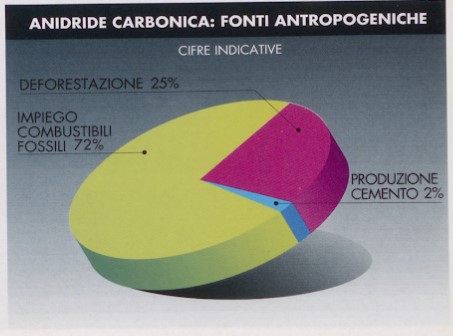
Shaping The Narrative
Today, Eni runs extensive advertising, cultural and sports sponsorships, and maintains partnerships with several Italian academic institutions.
Plenitude, an Eni brand, sponsors Italy’s Sanremo music festival, which is broadcast every February to millions of viewers. At Spain’s Primavera Sound festival in 2022, Plenitude set up a “green charging station” where concertgoers could charge their phones by pedaling exercise bikes.
According to a 2021 investigation by Greenpeace Italy, Eni has a funding relationship of some sort with one in two Italian universities.
Campaigners say Eni’s extensive advertising, sponsorship and other relationships with leading media and television networks in Italy has helped shield it from the kind of scrutiny faced by oil majors in other countries.
“There’s a ripple effect when scrutiny doesn’t take place in the country where the company is actually headquartered,” ReCommon’s Runci said.
Overseas, Eni is a founding member – along with ExxonMobil and Shell – of the “MIT Energy Initiative,” a low-carbon energy research partnership with the prestigious Massachusetts Institute of Technology.
“Partnerships between universities and fossil fuel companies such as Eni should be concerning,” the University of Oxford’s Franta said. “We know that other polluting industries, such as tobacco, have used academic partnerships to influence research, promote distractions and false solutions, and incentivize compliance with industry talking points.”
Meanwhile, campaigners say Eni’s emphasis on technologies such as carbon capture and storage, biofuels and hydrogen deflects pressure to decrease its oil and gas production in line with global climate goals. According to an analysis by advocacy group Reclaim Finance, Eni’s energy mix will be composed of more than 93 percent oil and gas, with low-carbon and renewable energy making up the remainder, by 2030.
“They have to somehow shift the conversation to something else. And that means saying they’re offsetting through reforestation projects, carbon capture and storage, nuclear fusion,” ReCommon’s Runci added. “Every time Eni brings up one of these ‘solutions,’ this message isn’t met with any critiques, and it just becomes the narrative.”
This story was updated on May 9, 2023 to include a statement from Eni.
Subscribe to our newsletter
Stay up to date with DeSmog news and alerts






